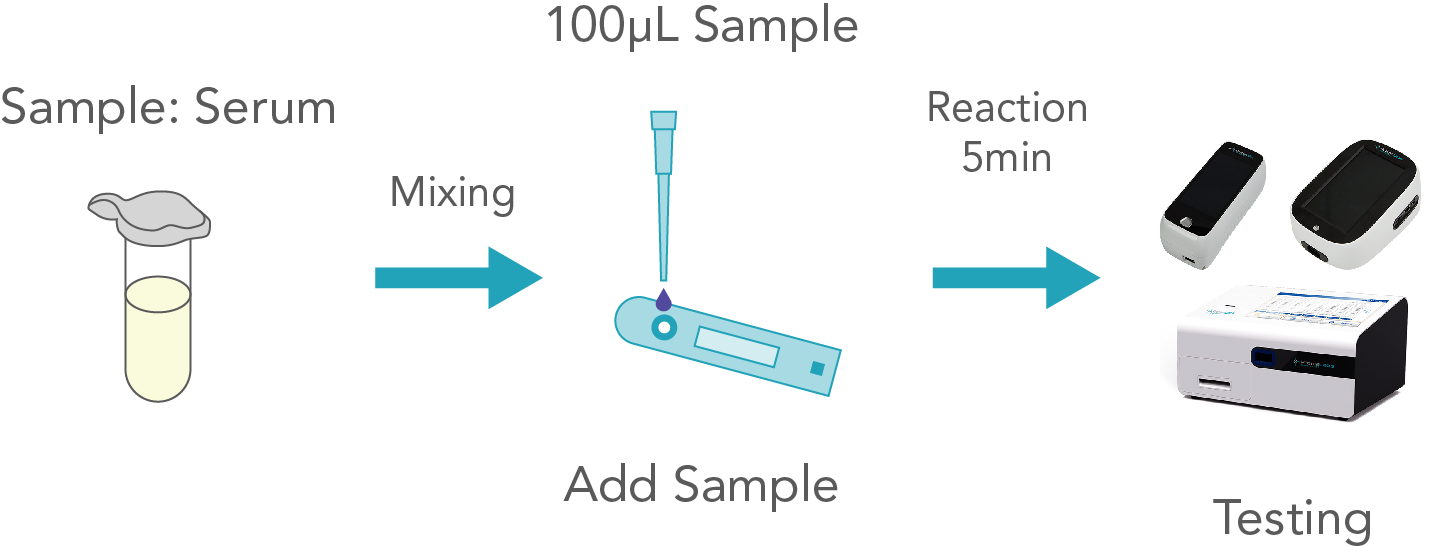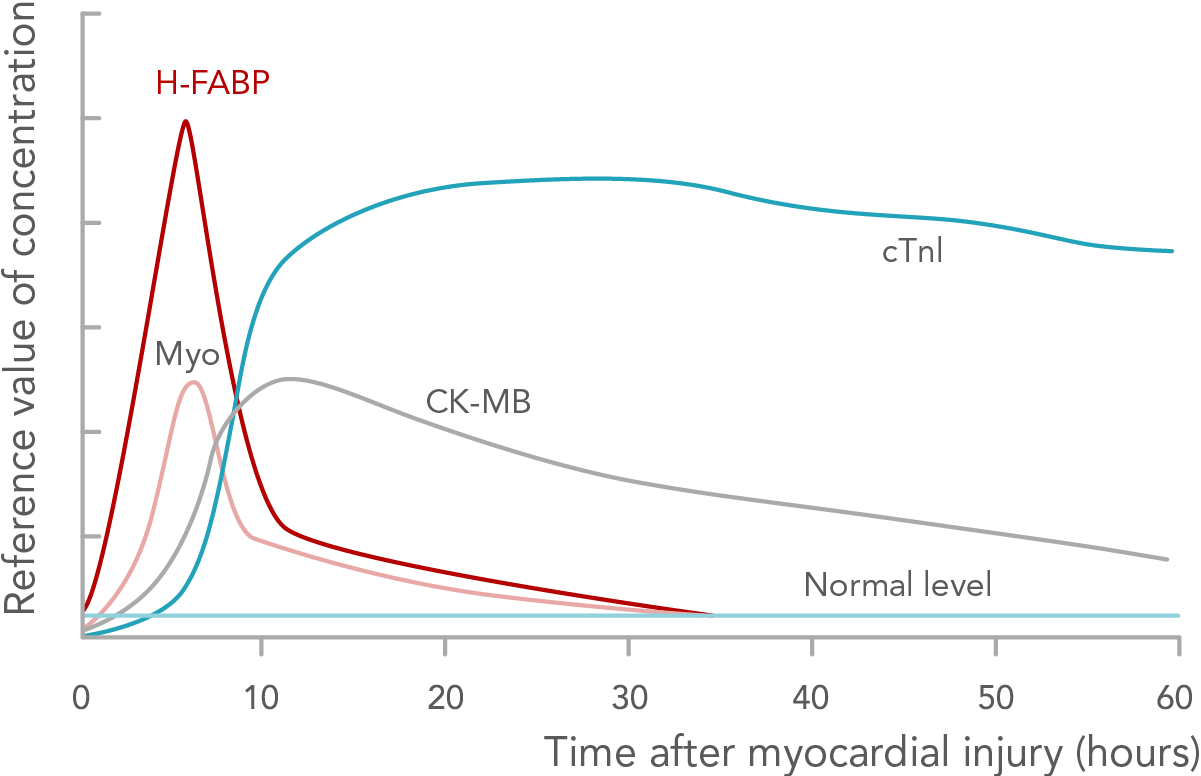BackDuration: 5 minutes
A cardiac biomarker, elevated early during a myocardial infarction
Clinical significance of test
Heart-type fatty acid-binding protein (H-FABP) is a novel cytoplasmic protein rich in the heart. It has high cardiac specificity (mainly expressed in heart tissue), but also low expression in tissues outside the heart. After the occurrence of myocardial ischemia injury, H-FABP can be found in the blood as early as 1 to 3 hours after the onset of chest pain, peaked at 6 to 8 hours and the plasma level returned to normal within 24 to 30 hours.
Steps of operation
Clinical application
- H-FABP has high sensitivity and good specificity in the diagnosis of early acute myocardial infarction (AMI) and early diagnosis of pulmonary embolism (PE). H-FABP is a sensitive and specific myocardial damage index, and its combined detection with troponin is the focus of future clinical diagnosis
- Detection of acute coronary syndrome (ACS): H-FABP is a biological marker for early diagnosis within 6 hours of acute coronary syndrome
- Detection of acute myocardial injury after operation
- Evaluation of heart failure: H-FABP detection is a good detection tool for guiding the optimal treatment of patients with chronic heart failure
Interpretation of results
Contact us


